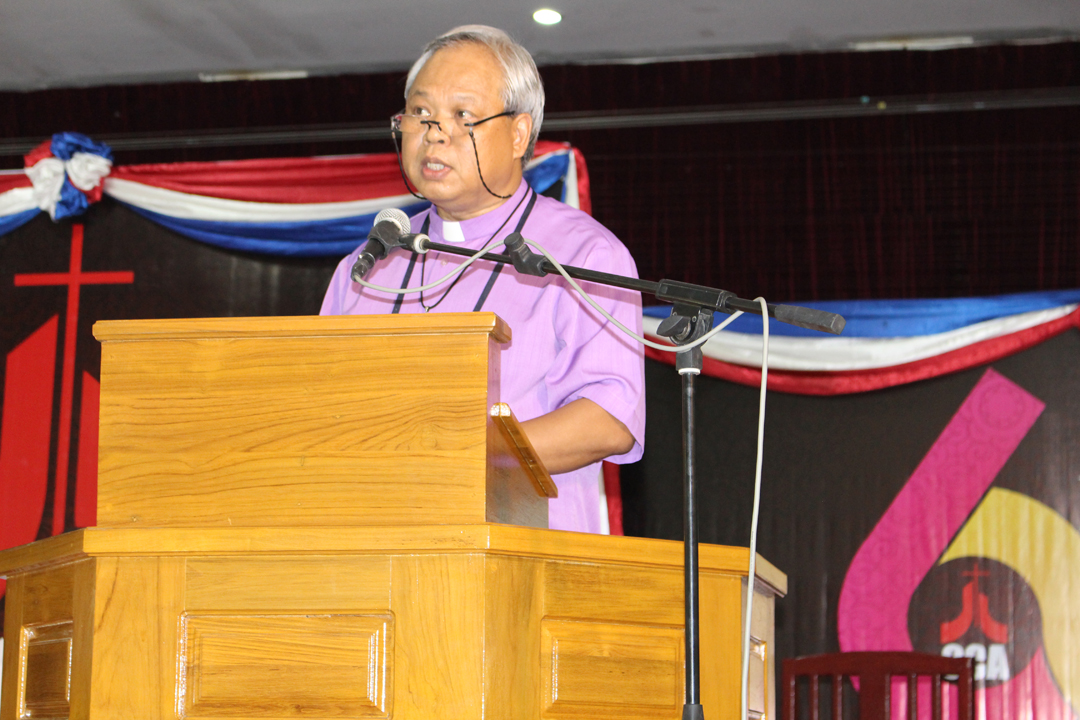"We are to be more kingdom-centric than church-centric", says Bishop Marigza

“Participating in the reign of God requires living in tension between the despair of now and the hope that is within us; at the future deliverance and the present suffering, noted Bishop Reuel Norman O. Marigza, head of the United Church of Christ in the Phillipines while giving the fourth thematic presentation at a plenary session on the third day of the Asia Mission Conference ( AMC) being heldin Yangon, Myanmar.
Bishop Marigza in his presentation reaffirmed that the theme of the Reign of God or the Kingdom of God is a central theme of Scripture, tying the essence of the Biblical messages together.
Bishop Marigza, a theologian and ecclesiastical leader in the Philippines stated that “the Reign of God is a mystery, that it is not a human project but God's project, and that God uses human beings and human institutions to work out the divine purpose and will”.
He likened the Reign of God to the leaven used to change the whole character of dough. Like the leaven, the reign of God works from inside.It works unseen. The kingdom is on its way.
He further added that “true religion is never dope; real Christianity is the most revolutionary thing in the world and can work revolution in an individual’s life and society. Just as Jesus was crucified because he disturbed orthodox habits and conventions, Christianity has been persecuted because it desired to take both people and society and remake them”.
Bishop Marigza invoked all to examine if we are on God's side or not and said, ”based on the emphasis of the teachings and mission of Christ, we are to be more kingdom-centric than church-centric. We must always be a Church in mission”.
It is important, he notes, CCA as the prime mover and coordinator of the Asian ecumenical movement to provide and facilitate a common platform to strengthen the understanding about the realities and situation in Asia – from virulent diseases and poverty to issues of migration, human trafficking, religious intolerance and extremism.










